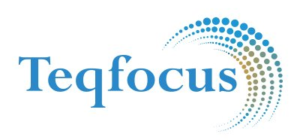
In summer 2019, I had the opportunity to interview Juhi Panchal, an incredible young professional and Account Executive at Teqfocus Consulting LLC, Toronto. In this article, reflecting on her unique experiences, Juhi shares insightful sales tips, valuable life lessons, and how she successfully transitioned into new positions.
About Juhi
Juhi has a degree in engineering and an MBA. She has more than 5 years of enterprise sales experience in the tech/telecom industries. After starting off as a hunter, she moved into a strategic sales role and is hoping to pursue her interest in the IoT space in the future. Being in sales gives her many opportunities to travel, which she really enjoys.
Working as an Account Executive
Juhi was one of the first sales employees at Teqfocus Consulting, a fast-expanding start-up company that specializes in IT implementation and management services. Working in an interesting field called system integration, she engages with clients and provides integrated solutions. As Account Executive, Juhi brings in opportunities in the IT perspective from the US & Canada markets while managing existing clients and leading an inside sales team in India.

To succeed in this role, an understanding of various aspects of sales and operations is required. First, Juhi needs to understand the company’s accounts, namely what businesses they are trying to get and the key stakeholders involved. Then, she has to manage existing clients and nurture those relationships. The third part is hunting, which consists of cold-calling, arranging meetings, and engaging with potential new clients. On top of that, she would leverage social media to gain insight into what the key stakeholders are up to, which helps to get conversations going. Finally, Juhi collaborates with various internal teams, such as marketing and client success, and communicates the customers’ challenges and expectations internally. Each quarter, she plans quarterly sales activities and figures out ways to obtain more opportunities for the team.
On a typical day, Juhi picks up three hunting accounts in the morning and checks what’s going on for each. Then, she focuses on and follows up with existing client accounts in the afternoon. Throughout the day, Juhi also attends internal functions and cooperates with other company processes.
A Career in Sales
After working in sales for a few years, Juhi knows that the key to success is being persistent. Oftentimes, customers do not respond after multiple calls, which can get frustrating. Juhi shared that whether a customer is willing to give them business or not, it’s important to ensure and keep in mind that future opportunities are on the table.
Juhi observed that a common misconception among those who don’t have sales experience is that sales is about one person executing a task alone. In reality, it involves a lot of teamwork, especially in enterprise sales. One tip she has is to follow a few experienced people and look at their accounts. Then, when starting to lead, it’s okay to stumble a bit, but taking the first step is important.

Working in sales comes with a lot of opportunities, such as participating in industry events and learning what different companies do through client meetings. At Juhi’s company, there are also many fun activities to be a part of, and pets are allowed in the coworking space.
There are many other advantages of working in sales. Salespersons represent their companies and can make a direct impact. They work in a dynamic environment, gain an understanding of different functions and roles in the company, and are required to keep up with constantly-changing perspectives and priorities.
That being said, the responsibilities are not clearly defined, so they must know their sales targets, similar to the idea of running their own company. Successful salespersons need to be self-driven, though the work does become easier as time progresses. What Juhi’s mentor told her sums up this idea cleverly: “no one will tell you what to do, how to do, when to do.”

Transitioning into a New Role
At the time of this interview, Juhi had recently transitioned into her role as Account Executive, so we took the opportunity to talk about how she managed to succeed in this new work environment with a different set of responsibilities. Here’s what she said:
- Understanding the requirements and goals (in this case, knowing the types of accounts she was managing)
- Having a 60/90 day plan
- Asking for feedback, knowing whether things are going the way they are supposed to
- Communicating with the entire team
- Being open when needing support
- Learning what other teams are doing and knowing which teams to talk to in certain situations
- Developing relationships (it’s also easier to ask for help that way)

Overcoming Challenges
Juhi learned to not take lost deals personally. She came to realize that when a company doesn’t select her, it’s usually not personal, because they have their own priorities. When in these situations, she strived to understand the reason why the client didn’t choose to work with them and kept an eye out for the next opportunity. She said, “losing one deal doesn’t mean you lose that client forever.” When these things happen, it’s important to discuss the learnings internally and keep them in mind in the future. The deals you lose prepare you for success with future deals.
Getting clients is really competitive; for each chunk of business, there are probably ten other people competing against you. This makes it important to know the client’s problems and help them find solutions. Without seeing the value they can obtain, the client is unlikely to accept a meeting.
Juhi talked about an interesting experience she had when just starting off. When coordinating with a client, she engaged the vendor in a joint meeting and introduced them to each other. Overtime, she realized that the client had bypassed her and went on to engage with the vendor directly. Her takeaway was that you need to know how much you should expose to someone and ensure there is no conflict of interest. It’s always good to evaluate whether your value really matters to the client.
Important Learnings
An important lesson Juhi learned was to always consider other people’s priorities when making plans. In the company, other teams have their own priorities. The meeting you want to have with a client is your priority that you want others to join in. In such a scenario, it’s helpful to maintain a good balance by understanding what their priorities are, how much time they need to complete them, and evaluate the urgency of the meeting. This is especially applicable when trying to engage senior management, who often have busy schedules. It helps a lot to plan things well in advance.

Another interesting story Juhi brought up was something that happened in one of her previous roles. She was handling different types of clients, some of which were not assigned specifically to her. In this case, there was conflict of interest; sometimes clients were communicating with multiple people from the company. Juhi’s clients were subject to interference from other salespersons from her team. It was a tough situation to deal with, because she couldn’t just tell the client to stop speaking to whoever was trying to interfere. Instead, she established with the clients that she was their touchpoint and that they should come back to her if anything happens while highlighting the same things internally.
Finally, Juhi shared two life lessons. First, evaluate your words before saying them out loud and being sensitive to how you might come across. Second, understand that setbacks are often caused by external factors. There are good days and bad days, but they will all come to an end. Refraining from questioning your own abilities and having endurance go a long way.
For more interviews and articles in the Top Young Professionals series, please check out our YouTube channel and Instagram page.
